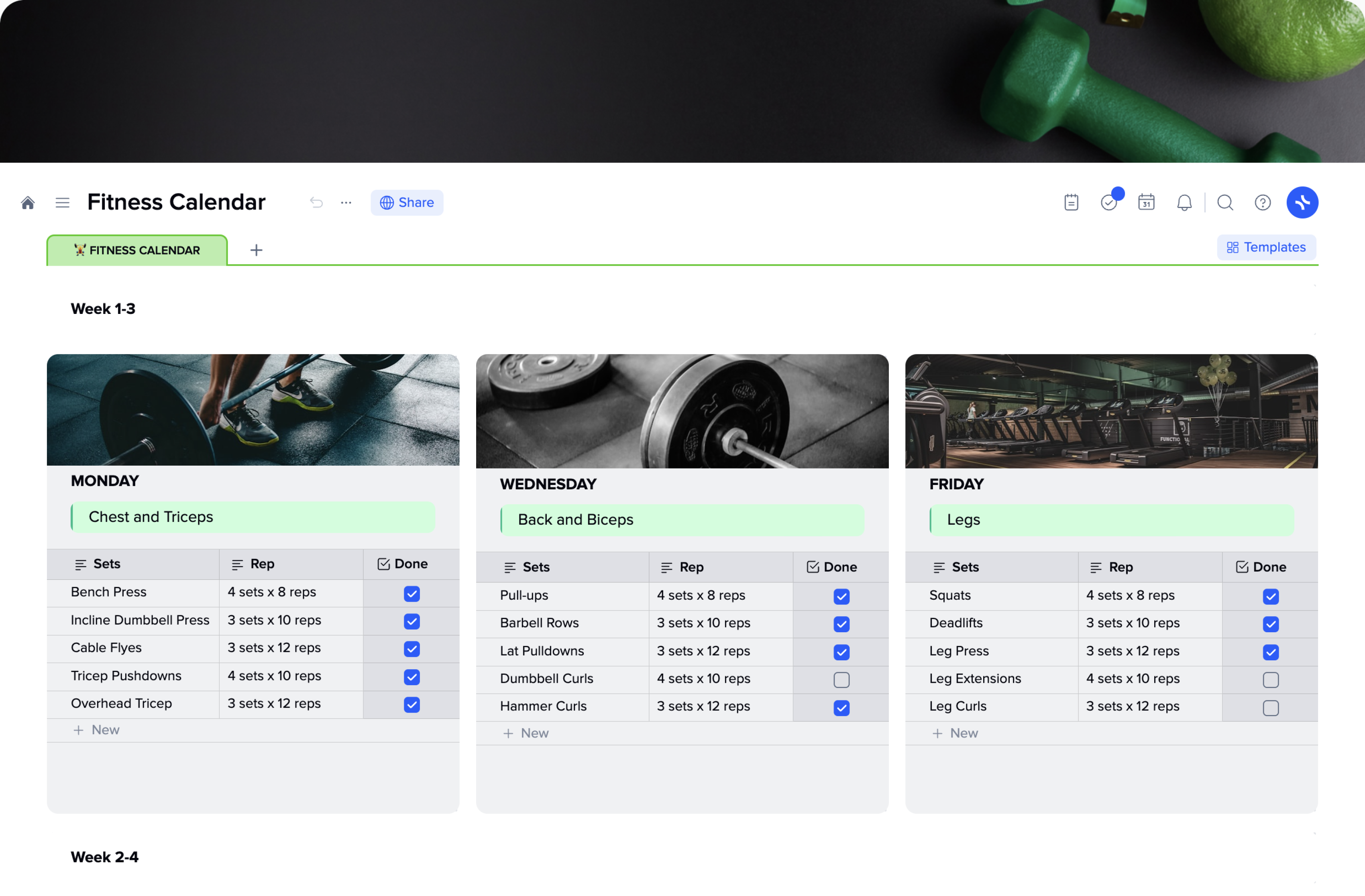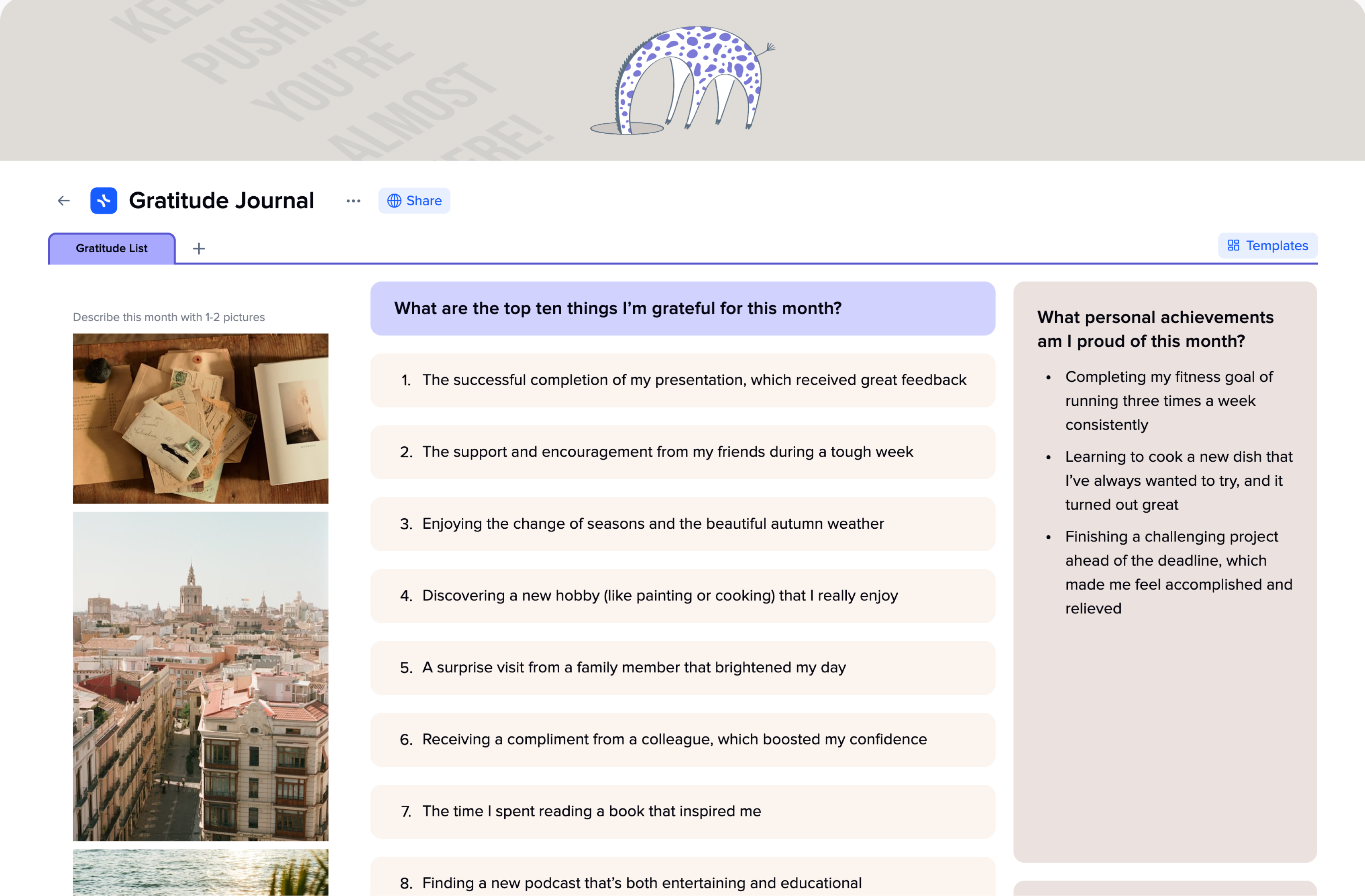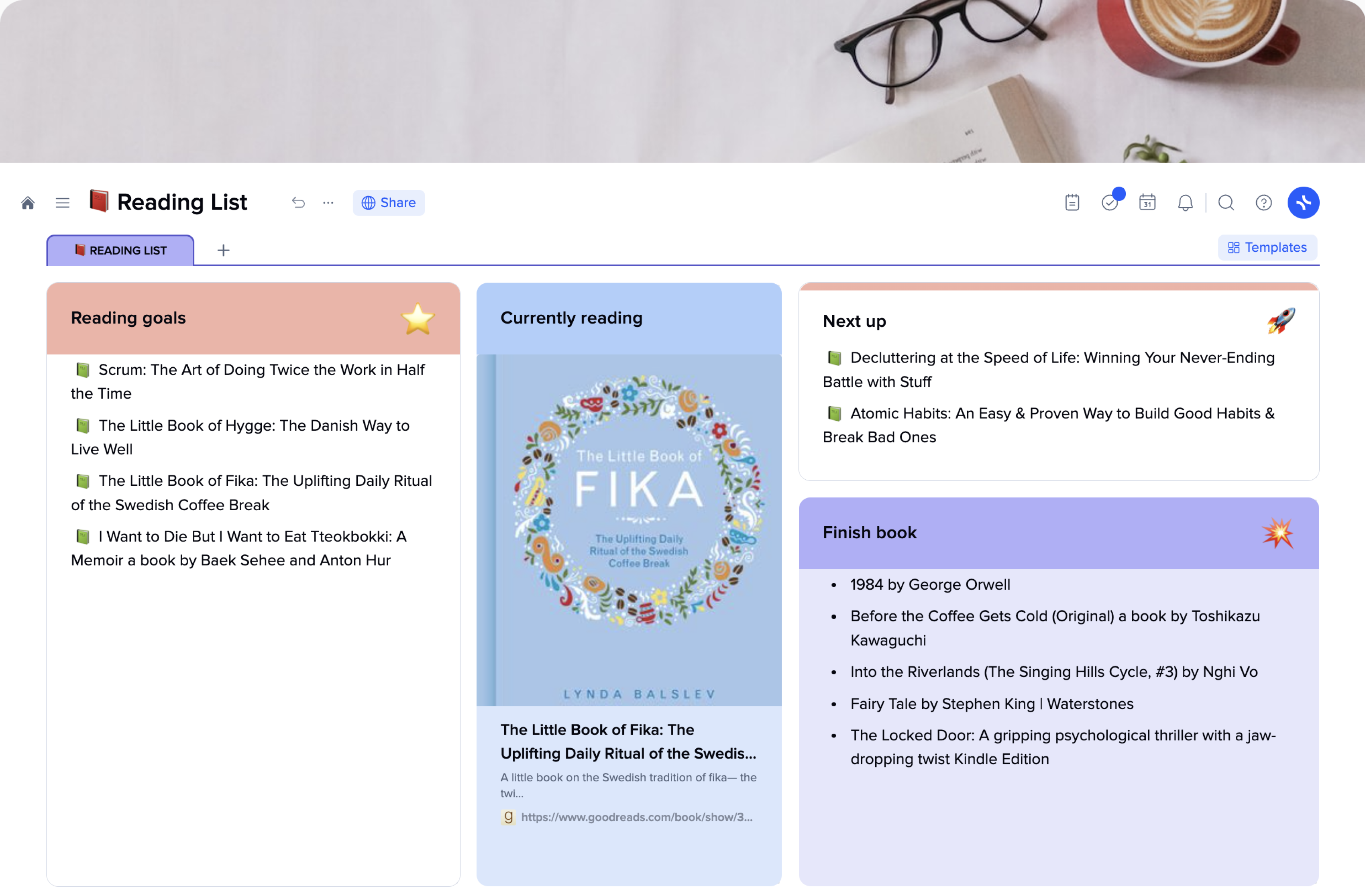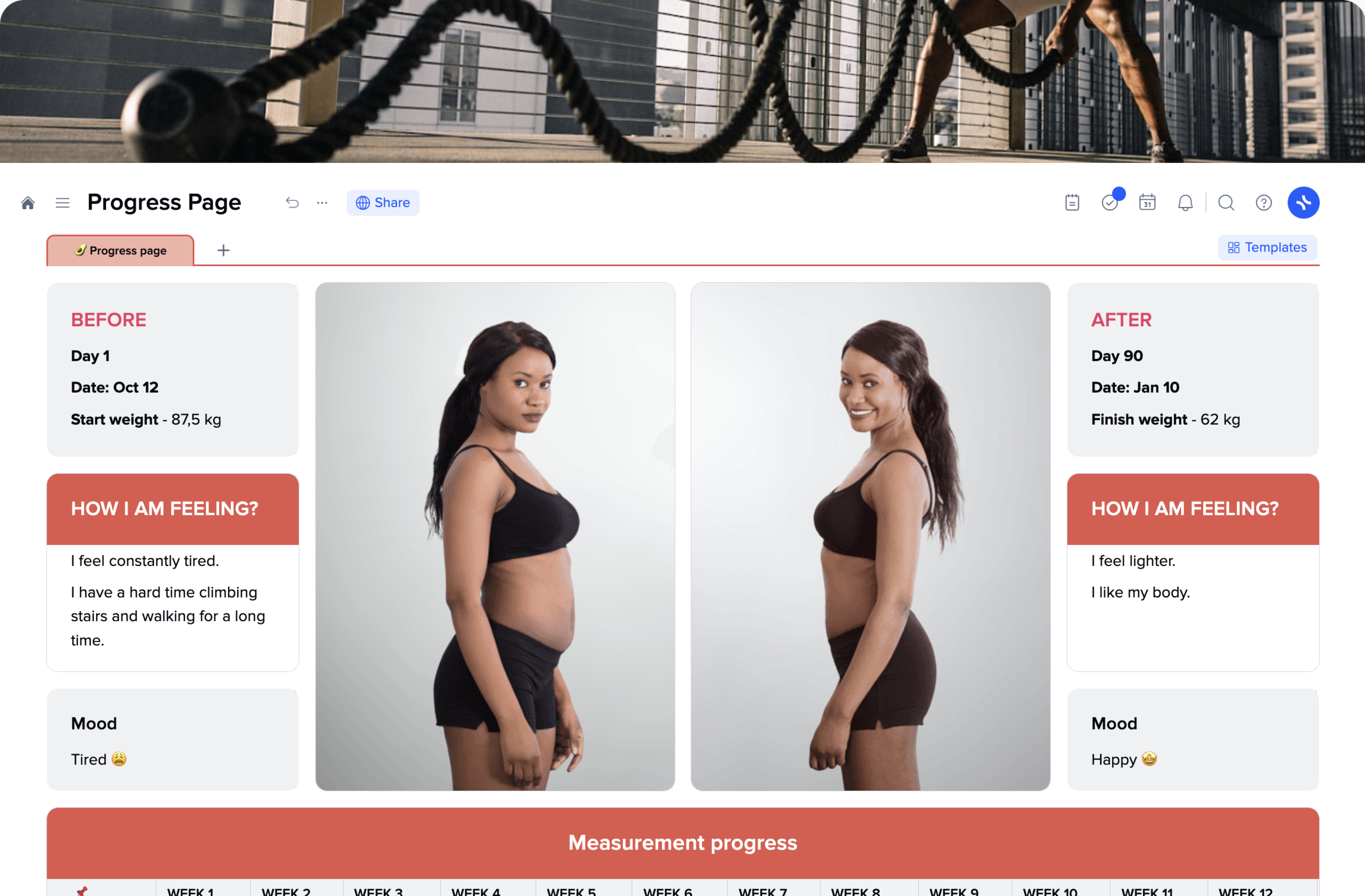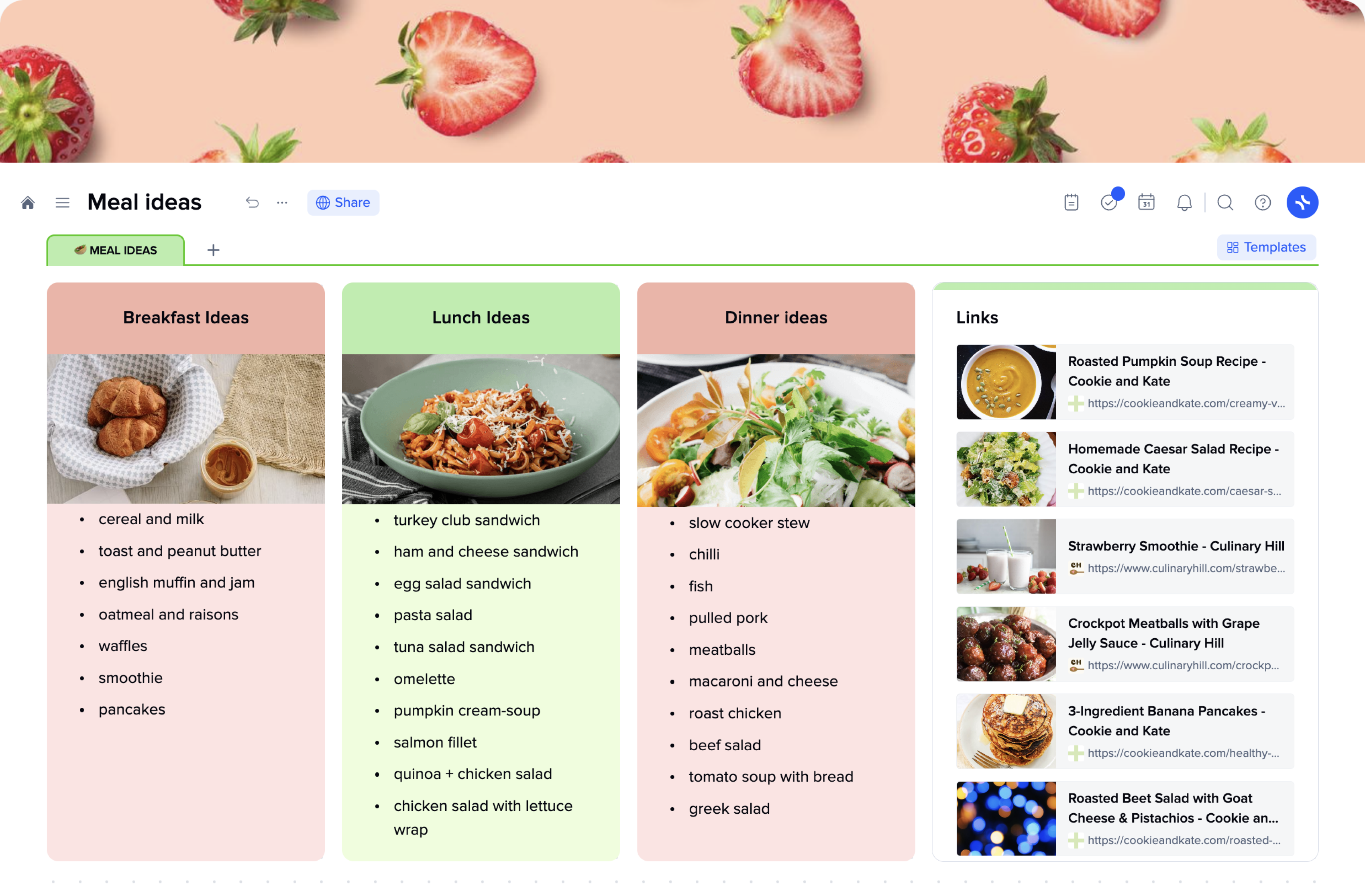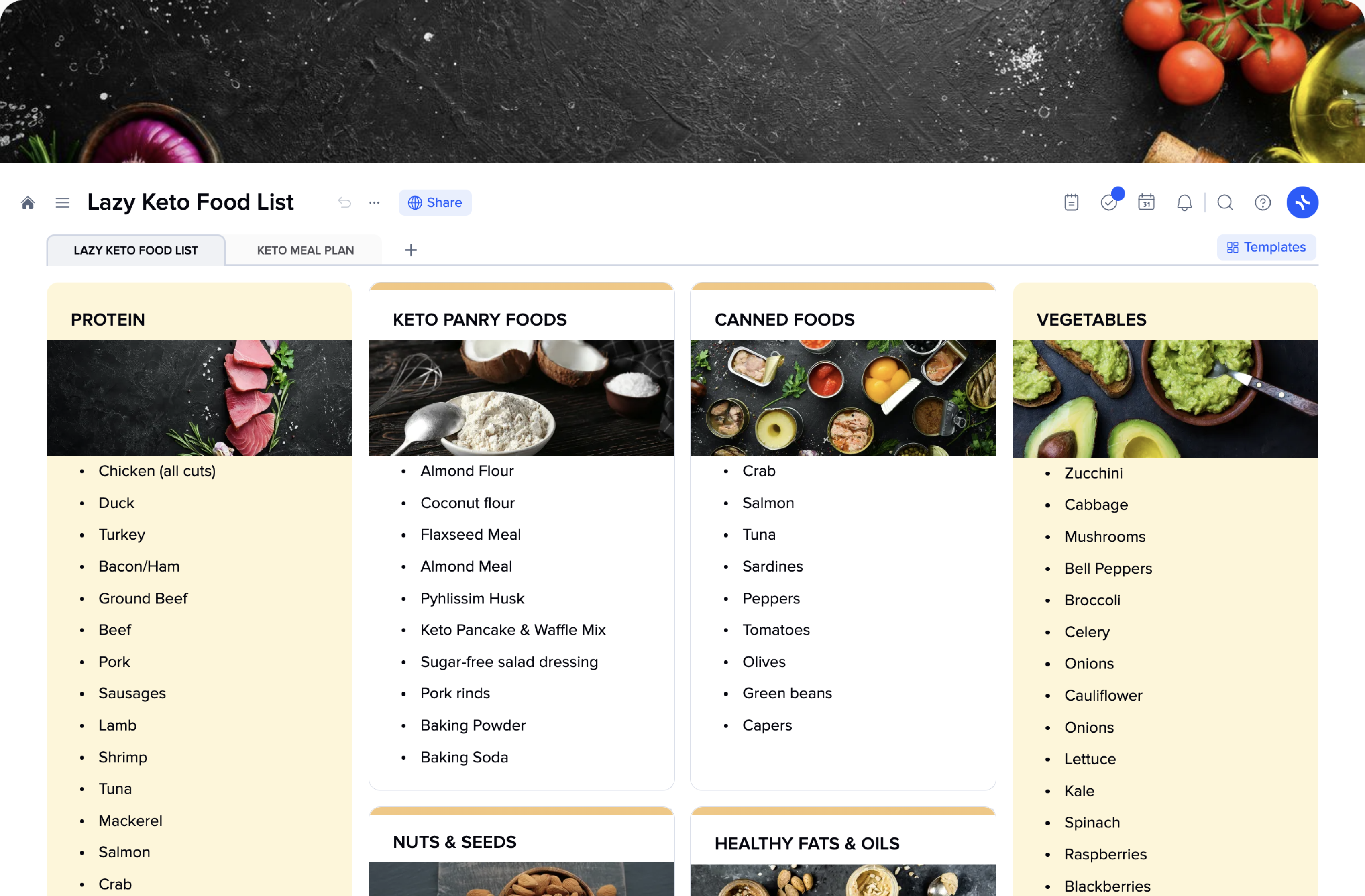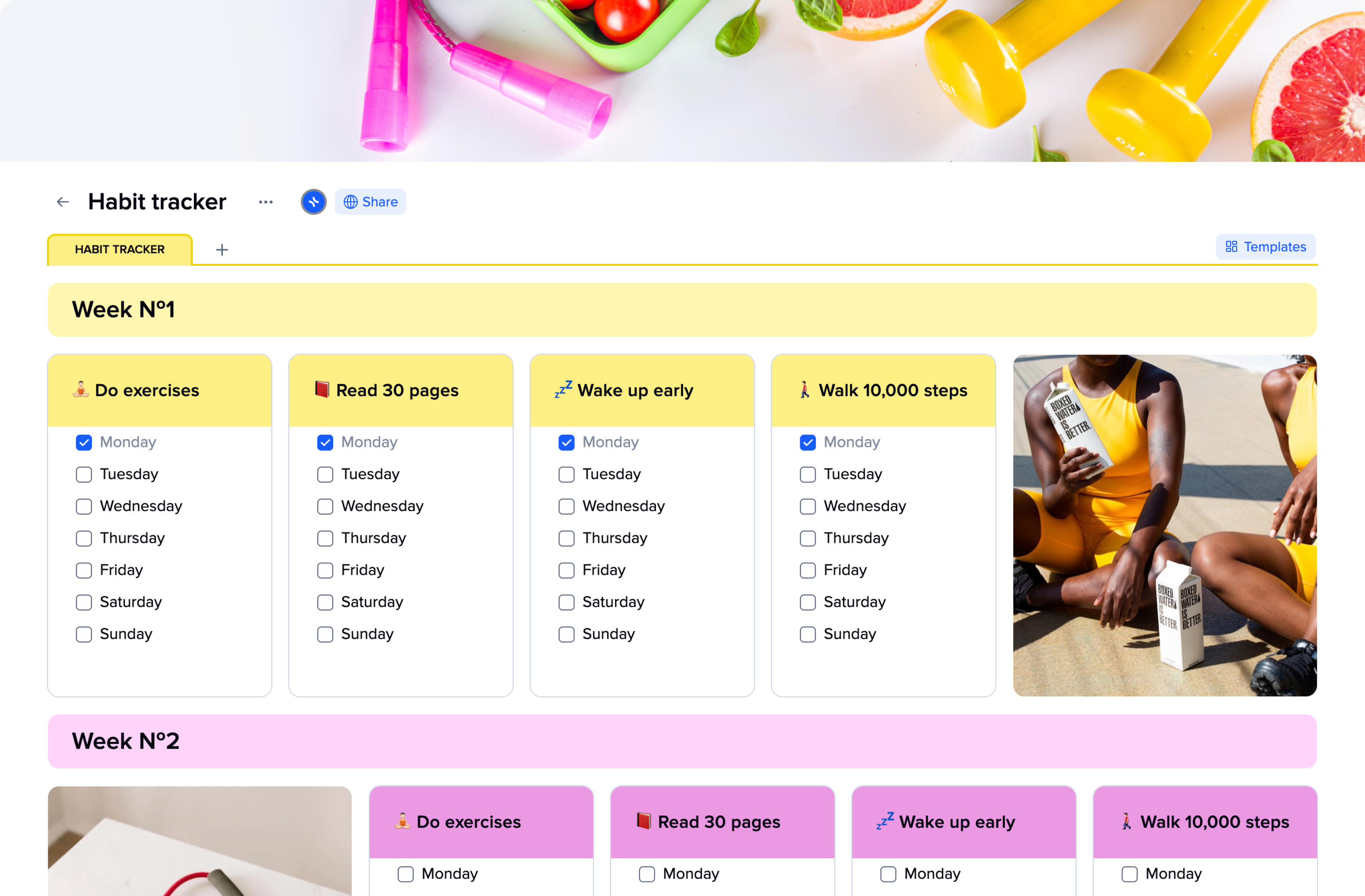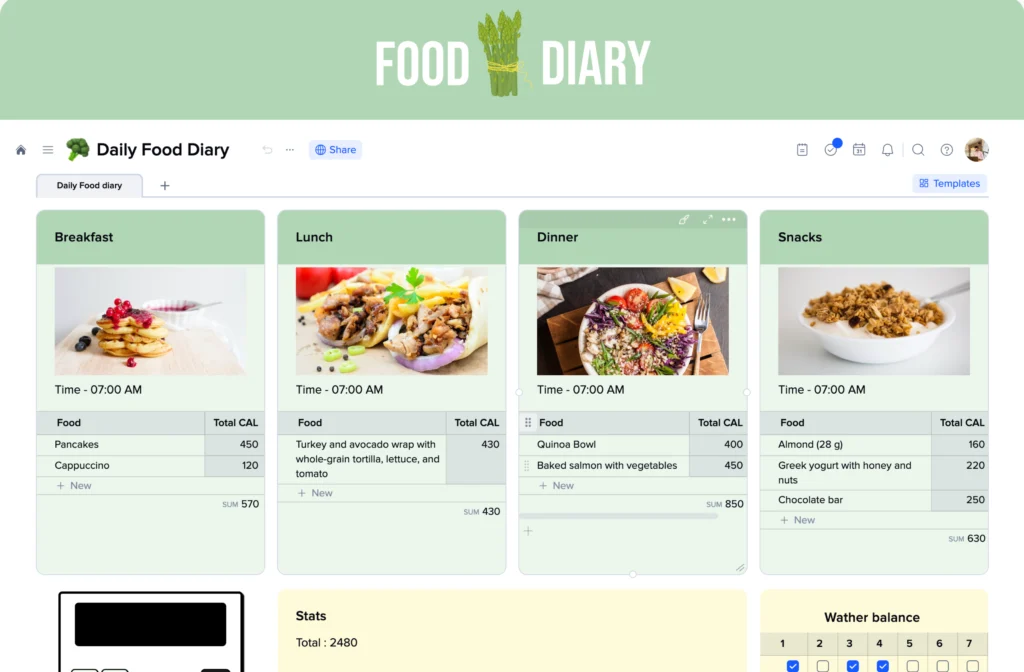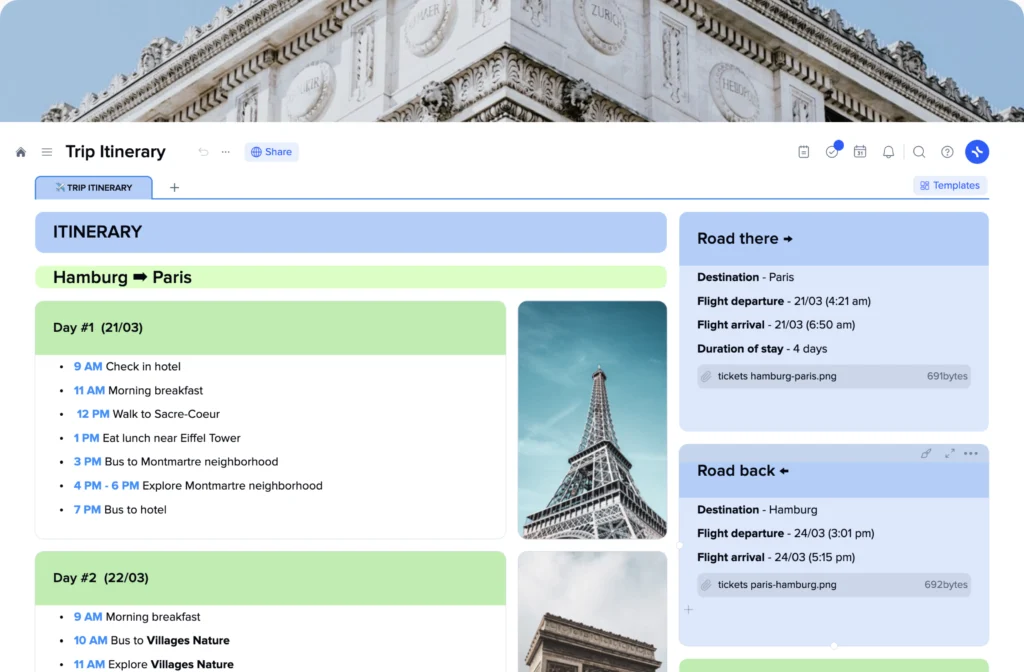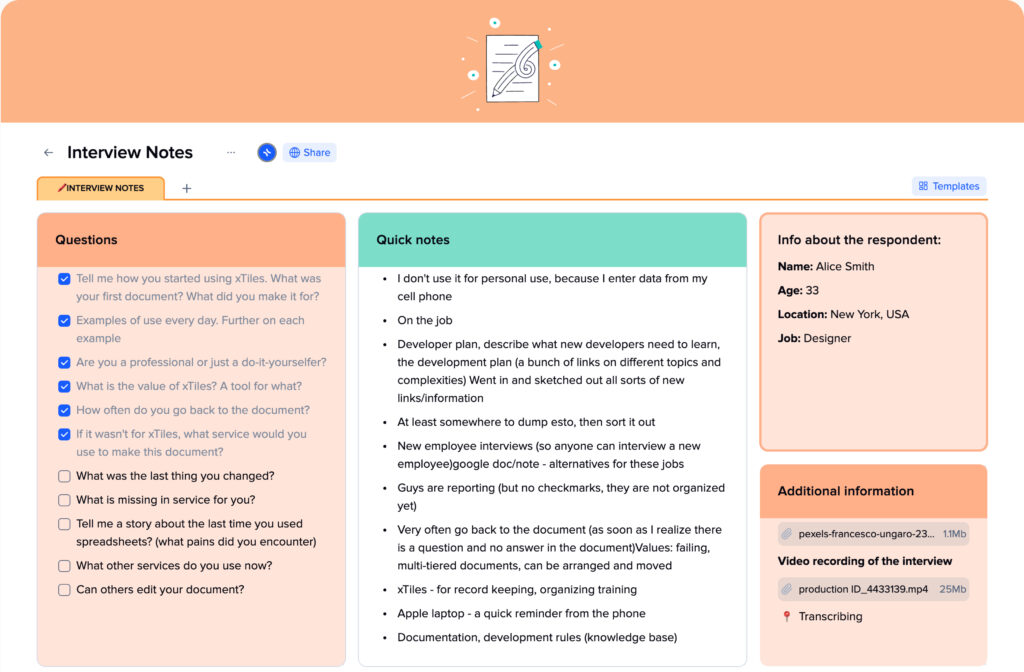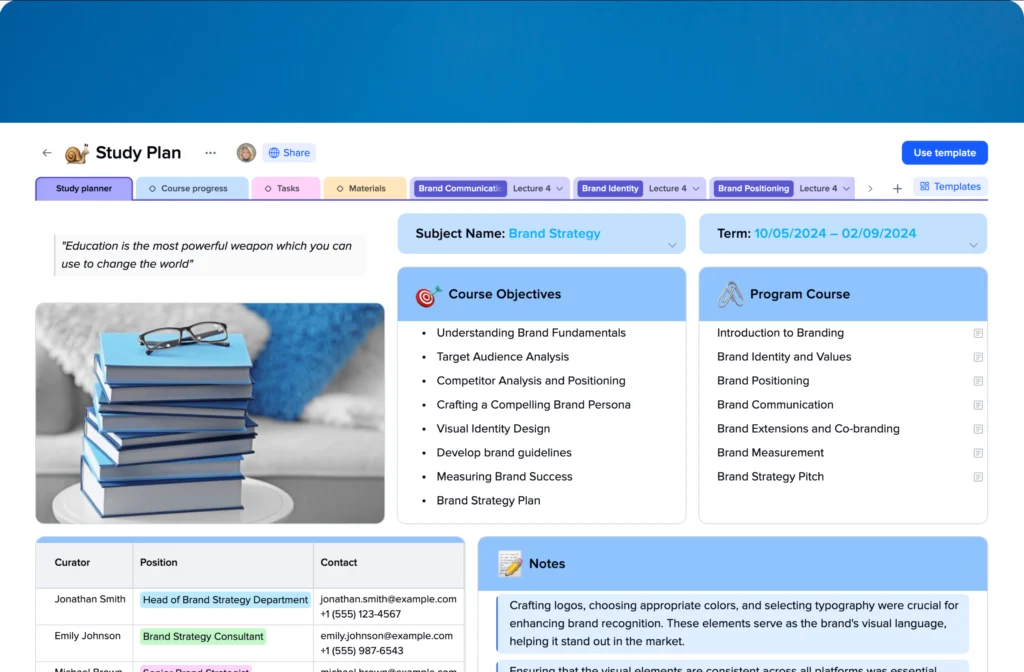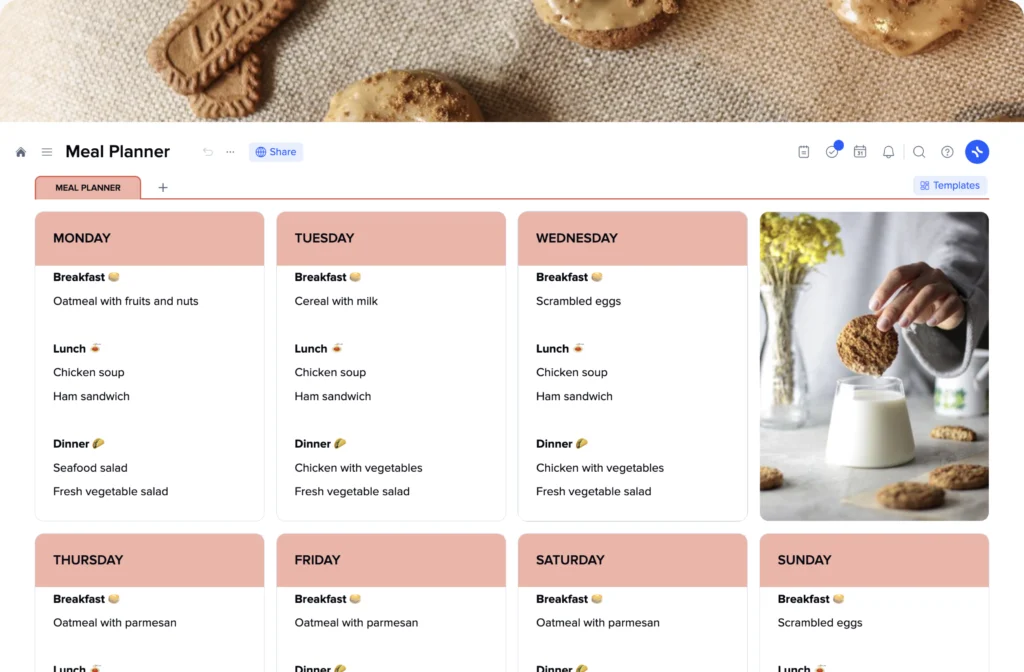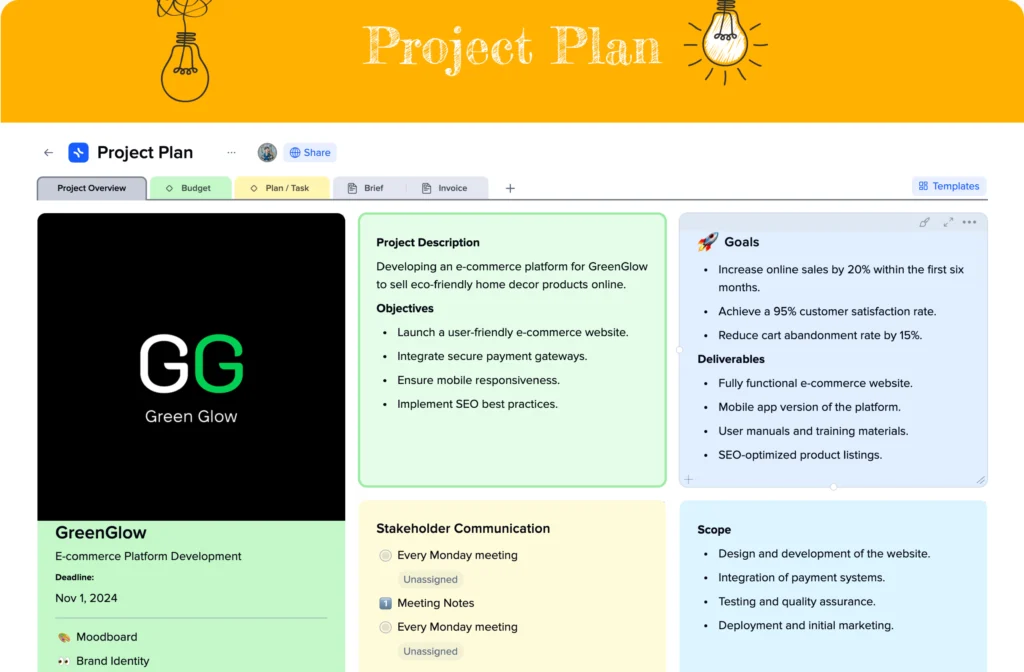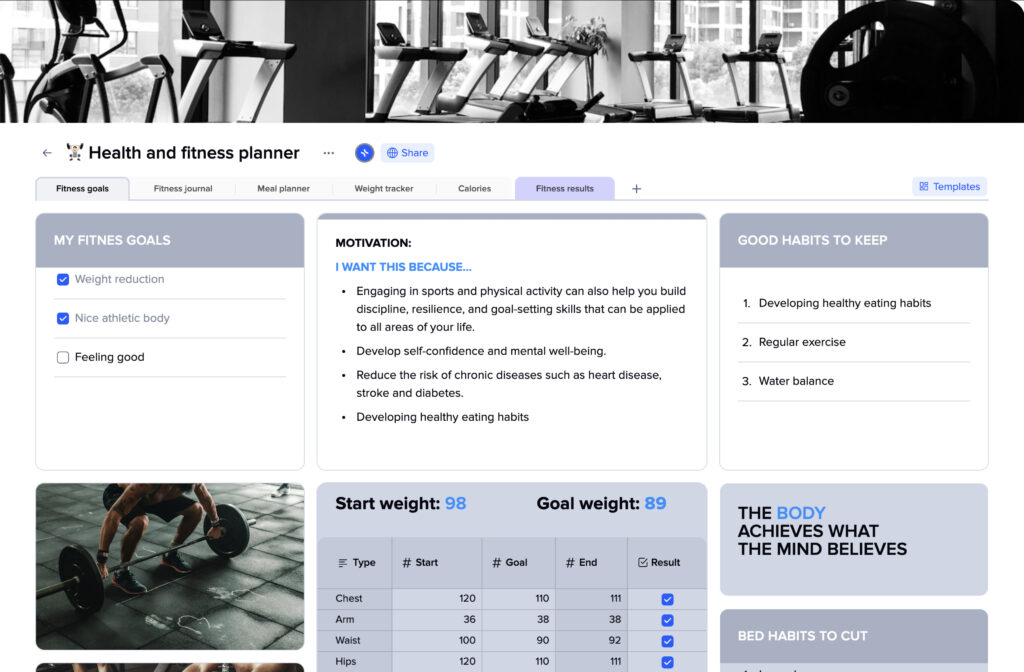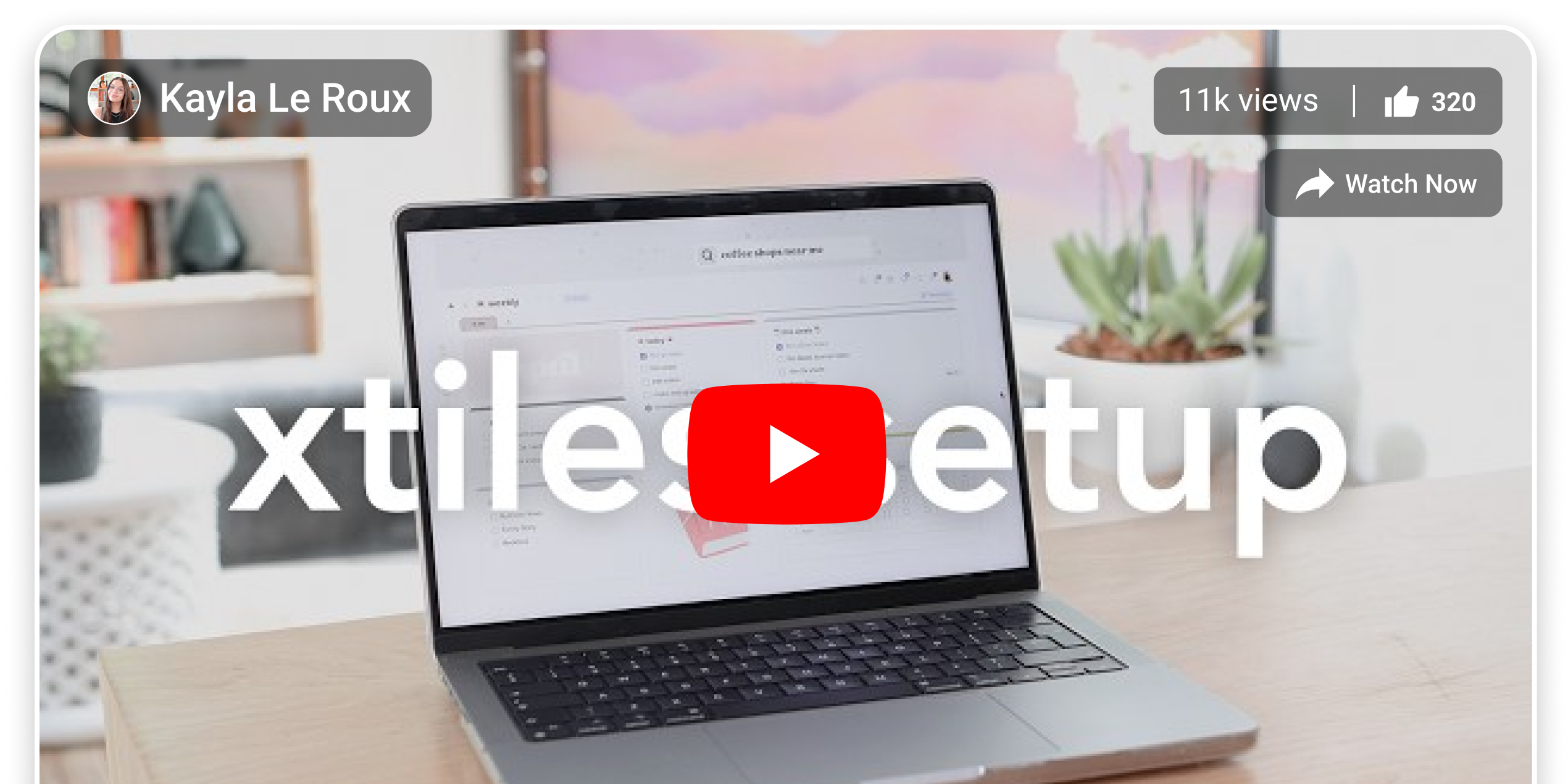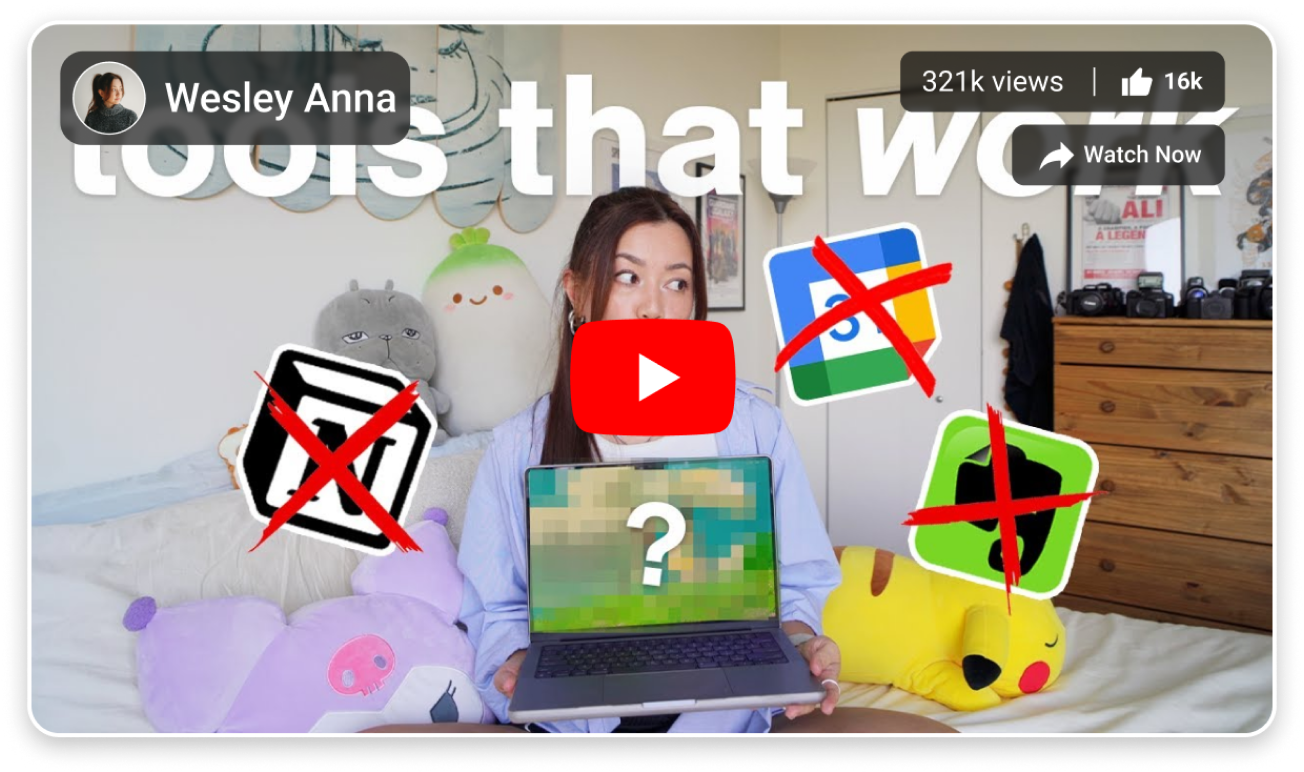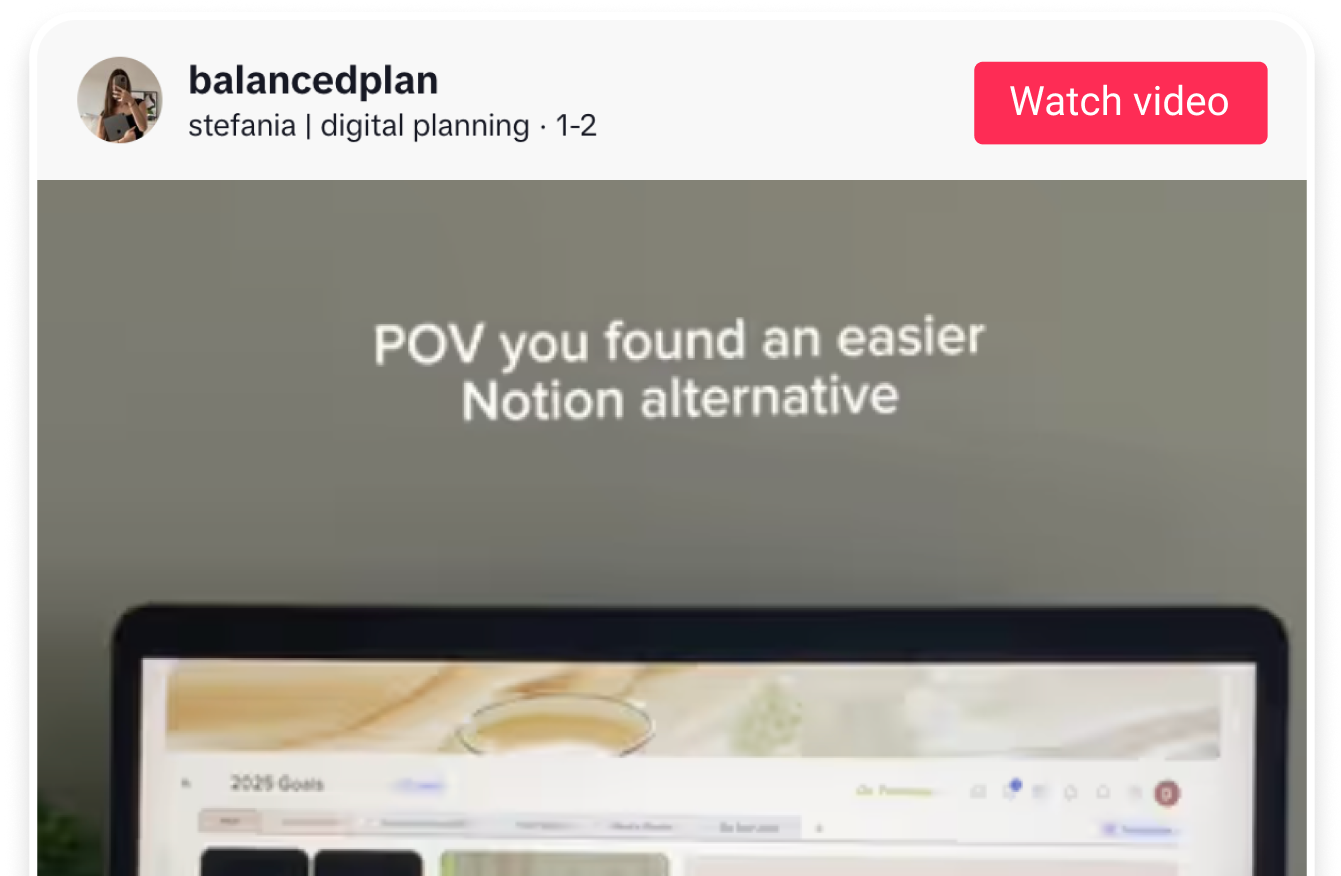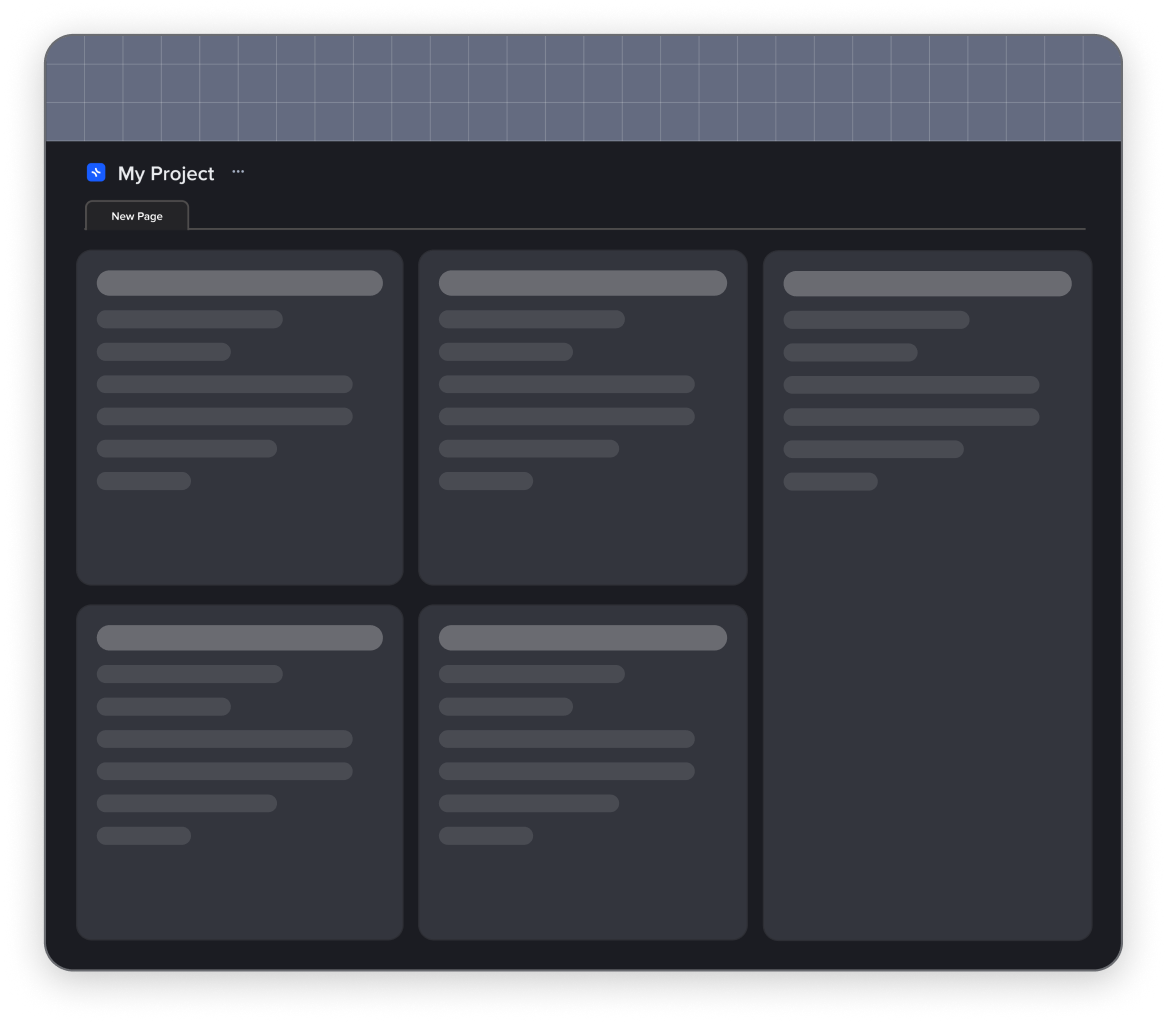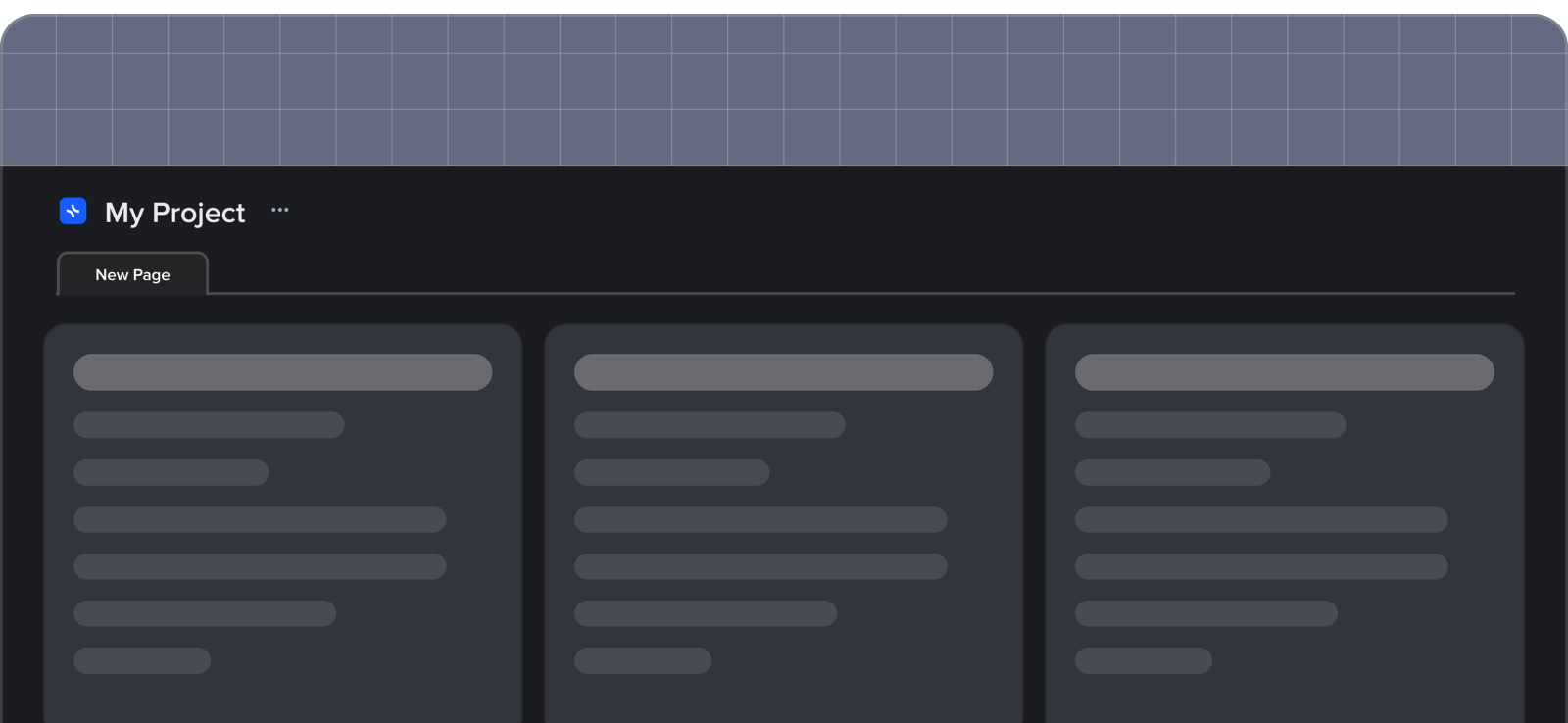Fitness calendar template
Consistency is key for many important and useful things in our lives, and every tool that helps us stick to it is worth attention and trying. The fitness calendar will help you keep track of your workouts and meals – two things that are tightly bound and determine your physical shape.
A workout template allows you to easily create a well-thought-out and balanced training program depending on your preferable sports activities and favorite meals. An excellent view of your workouts throughout the week may motivate and inspire you to move forward.
The xTiles Fitness Calendar Template will become a useful tool for all kinds of workouts and athletes, whether you’re a novice or a gym frequenter.
What is a Workout Calendar
The first thing every fitness enthusiast learns is that consistency and repetition are the guarantees of success, in our case – the body of their dreams. How can one ensure they do the same exercise for the same amount of time, etc? Using a workout calendar or workout plan.
After some time of doing the same stuff over and over again, our brain gets tired. You probably spotted that when standing in a plank position. After 20 seconds, your eyes try to find something interesting in a room. That’s why you might think that you do your usual routine, while in reality, it changes every time you work out.
A fitness calendar stops people from going astray from your path. It outlines the days, times, and types of exercises a person intends to perform over a given period to help them stay committed to their goals.
A workout calendar helps you plan your fitness sessions according to your other activities. Using it with your Weekly Planner lets you clearly see your week. A tough day in the office with many meetings? It might be better to schedule a stretching session to release tension and relax after a hard day.
Workout calendar apps and pre-made workout templates ease the planning process, providing you with many organizing and customizing options, so you can make your own fitness calendar that will be perfectly tailored to your needs and inclinations and look highly appealing and inspiring.
Who will benefit from using a workout calendar template?
A workout calendar may come in handy for many people involved in sports activities. Here are some of the most popular cases when people seriously benefit from creating a fitness plan according to their needs and preferences.
People who regularly work out in the gym on their own
When you have a trainer, your exercises and technique are not entirely your hassle. You know that someone will take care of everything to help you reach your goals, so you can give yourself fully to working out.
However, when there’s no one to keep an eye on you, you need to do it yourself, and a ready-to-use fitness calendar template is a great way to plan your training sessions together with your meals, as none of them works without the other.
People who regularly exercise at home
Home fitness has become super popular during the Pandemic. Today, many people keep exercising at home regularly. And many people keep choosing their living room and mat over gyms.
Well-balanced training sessions can’t be created on the run. Improvising may be great, but not for your muscles. A pre-made workout calendar template will help you plan everything quickly and easily to reach desired results.
Personal trainers
Being a trainer also means teaching people to think about their fitness routines. Many people quit using trainers when they become more confident. That’s why you can provide your clients with a comprehensive fitness schedule to help them become more independent without harm to their health.
Fitness beginners
When you only start, and there’s no one to guide you, you might get lost easily in a current of new information. A calendar will provide a fitness novice with structure and guidance on which exercises to perform and which menu to create to build a solid foundation and make them love fitness.
People who are constantly busy
If your schedule is super busy, and you struggle to find time for any additional activity yet still would like to exercise at least a bit, a fitness calendar template may help you. Use it to plan your training in advance to prioritize your exercise and ensure there’s time for them.
To establish a healthy relationship with food and sport
When used too much and incorrectly without control, fitness might become destructive and harm our bodies and minds. If you exercise relying only on your feelings and sweat stains, you may not clearly understand how much you are working out.
A ready-to-use fitness calendar will help you determine whether your working-out routine and menu are healthy. If not, it will help you build a new one, this time with the idea of taking care of yourself as the base of the whole concept.
How to create a well-balanced fitness program using the xTiles Fitness Calendar template?
When creating your personal fitness calendar, you will need to consider various factors such as your fitness goals, current fitness level, and personal preferences. Each of these factors is important to outline training sessions that will be enjoyable for you.
Let’s start from the very beginning and plan a workout calendar for a fitness beginner using the xTiles Fitness Calendar template.
Set your fitness goals
The most popular fitness goal is losing weight. However, fitness shouldn’t become a part of your life only occasionally if you want to keep a healthy body mass.
Being patient with others is what we learn in early childhood. However, we aren’t always patient with ourselves, demanding fast results where they are unrealistic and unnecessary. Goals like “to lose 10 lbs in 5 days” usually lead to unhealthy relationships with sports and food.
That’s why general goals like upgrading your overall fitness level are much better than goals with strict numbers. Also, it’s advisable not to set goals according to clothes you can’t fit in anymore. It’s clothes that are supposed to fit, not you.
Determine your workout frequency
Decide how many days per week you want to exercise or how many days are available. Working 9 to 5 may not leave enough time for regular sports activity in the gym, especially if you need to commute there. In this case, home fitness is preferable.
Before you decide upon days, please remember that the World Health Organization (WHO) recommends at least 150-300 minutes of moderate-intensity aerobic physical activity for adults aged 18-64 spread throughout the week.
If you’re new to fitness, it may be better not to exceed these WHO guidelines.
Choose your workout types
Today, anyone can find a workout they will like. Standing workouts for your abs, running or cycling for cardiovascular health, weight lifting or bodyweight exercises for building muscle and increasing overall strength, yoga or pilates for relaxation and increasing flexibility, etc.
You may mix aerobic and strength training exercises to ensure a well-rounded session.
Also, it may take time until you find something you will like, so be patient and try different workouts to learn yourself and your body.
Plan your workouts
Determine each exercise you will perform on each day of your week. You may devote some days to aerobic exercises and some solely to strength training. Or you may mix these two during one training day.
It’s important to remember that you can stop whenever you don’t feel like finishing your planned workout. For these cases, you may plan a separate relaxing workout to reestablish the connection between your body and mind.
The xTiles Fitness Calendar offers you the structure of a traditional planner with two sections for every day – one for your sports activities and one for your menu. Write down your exercise plans and menus, and take a look at the whole picture. Do you like it? Do you think you can handle it? Or will it be a challenge?
Consider recovery
Rest days play the same role in your progress as training days play. Ensure you have at least one (better if more than one) rest day during the week. Your body needs these days to recover after all the hard exercises you were doing previously.
Walking is a great way to spend time and burn calories if you still feel like doing something.
Also, you may take more than one rest day in a row if you don’t feel well, or again, you may return to your relaxing workout just to keep yourself motivated.
Be flexible
We plan, but life makes corrections. That rule applies to all spheres of life, especially those we’re willing to sacrifice more easily. You put your leggings on and take your mat, and someone suddenly rings your door. Now, you spend your evening with friends who decide to pop in.
Also, your fitness calendar may need adjustment for many reasons. You learned your body, and now you can tell that some exercises don’t work for you, you’re ready to try something new/more complicated, etc.
It’s super important to listen to your body and make changes to your plan as necessary if you’re intended to make fitness a part of your life for years to come.
Take care of your menu
All the previous steps are rather useless without a healthy and nutritious diet. Starving doesn’t lead to weight loss. Your menu should be built according to your activity level, the food you like, and your dietary restrictions, if there are some.
If it’s created wisely and covers your energy needs, it will help you continue to perform exercises, and if not, you’re likely to quit quickly. Please consult your doctor or a professional nutritionist before starting sports activities regularly.


